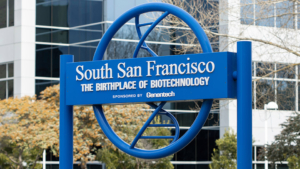
Cancer UK/UCB collaboration: study with 2nd compound started
Belgian UCB SA and British Cancer UK have started a second clinical study within their multi-year partnership to evaluate the safety and tolerable dose of UCB4594 in patients with advanced cancers.
In March, Cancer UK and UCB SA started a drug development collaboration by starting clinical tests of UCB6114, an antibody targeting gremlin-1 in the tumour stroma.
Now, the charity-industry collaboration has kicked of a muticentre trial in HLA-G-positive cancer patients with UCB4594, a newly developed antibody targeting human leukocyte antigen G (HLA-G) that is usually found on the surface of cells forming the placenta. These antigens interact with the immune system and influence the immune system’s ability to accept and support the growth of a foetus – a process called maternal-foetal tolerance.
As a foetus is genetically different from the mother, it would normally be treated as a foreign invader by the immune system, and maternal-foetal tolerance processes activate to counteract the normal immune response. Certain types of cancer cells take advantage of these processes by displaying HLA-G molecules on their surface to avoid being detected by the immune system leading potentially to poor outcomes for patients.
Interfering with this process in non-pregnant patients is a potential way to prime the immune system to attack cancer cells overexpressing HLA-G.
The first part of the study has opened which is designed to assess which dose of UCB4594 treatment is most tolerable to participants. Positive results from the trial could lead to further studies into the effectiveness of UCB4594 in treating different types of cancer associated with high HLA-G levels.
Honorary Professor at The University of Manchester, Medical Oncology Consultant and Medical Director for the NIHR Manchester CRF at The Christie, Professor Fiona Thistlethwaite, who is leading the trial, said:
“Despite many breakthroughs in cancer research, some cancers are still very challenging to treat, and patients deserve better treatment options,” said chief investigator Fiona Thistlethwaite from the NIHR Manchester CRF at The Christie. “Targeting immune processes involving HLA-G could show promise as an approach for beating certain cancers. We look forward to seeing how this trial progresses to investigate whether UCB4594 is a tolerated and effective treatment for potentially treating patients with advanced cancers.”
The clinical development of UCB4594 is part of a collaboration with UCB SA and Cancer Research UK’s Centre for Drug Development. Under the collaboration, Cancer Research UK are exclusively responsible for the design, sponsorship and delivery of the trial, while UCB will manufacture and provide UCB4594 for the trial. UCB retains exclusive rights to further develop and commercialise UCB4594 and will receive a licence to the results of the clinical trials from Cancer Research UK in return for undisclosed success-based milestone and royalty payments.
UCB SA is not the only company focusing on (cancer) antigens expressed by the placenta. The US spin-out Harbinger Health of the Max Planck Institute for Molecular Genetics in Berlin is currently testing whether a CpG methylation signature found in placental tissue is suitable for the early diagnosis of the 10 most important types of cancer. According to academic founder Alexander Meissner, the signature is found exclusively in placental tissue and developing tumours. If initial results are validated by the clinical study involving 10,000 volunteers, cancer could be diagnosed by blood test at such an early stage of development that metastasis could possibly be ruled out.



 BioNTech SE
BioNTech SE Genentech Corp. / Roche
Genentech Corp. / Roche